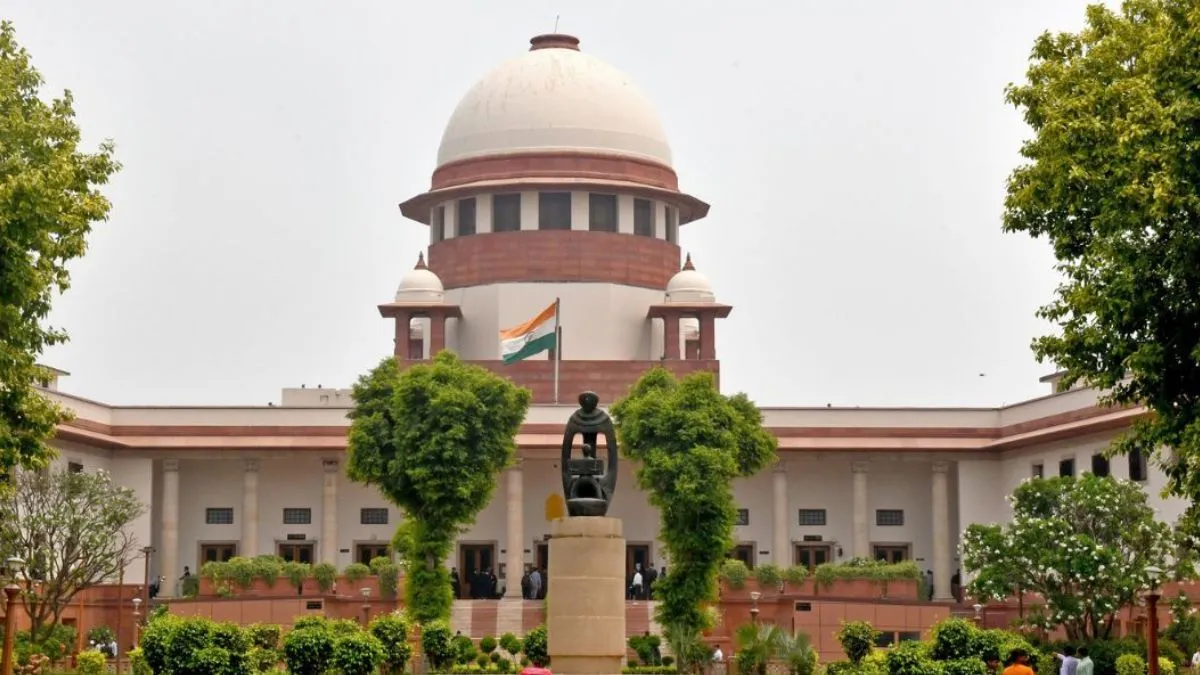- By Aashish Vashistha
- Mon, 25 Nov 2024 01:44 PM (IST)
- Source:JND
The Supreme Court on Friday dismissed a batch of pleas challenging the inclusion of words “socialist” and “secular” in the Preamble to the Constitution through the 42nd Constitutional Amendment in 1976.
The top court bench led by Chief Justice of India Sanjiv Khanna and Justice Sanjay Kumar, stated that Parliament has the authority to amend the Preamble of the Constitution. They also clarified that the date when the Preamble was adopted doesn't limit Parliament's ability to make changes to it. Based on this, they rejected the argument that amendments to the Preamble could only apply in the future and not retroactively.
ALSO READ: Elon Musk's Department In Trump 2.0 Biggest Threat To China, Warns Xi Advisor
According to the LiveLaw, Chief Justice Sanjiv Khanna said that the judgment has held that after such a long period, the process cannot be nullified. Additionally, the judgment clarifies the meanings of 'socialism' and 'secularism.' "It has almost been so many years, why rake up the issue now," CJI Khanna said.
"The two expressions 'socialist' and 'secular' were made in 1976 through amendments and the fact that the Constitution was adopted in 1949 does not make any difference... the retrospectivity arguments if accepted will apply to all amendments," CJI Khanna was quoted as saying by news agency PTI.
The batch of pleas was filed by former Rajya Sabha MP Subramanian Swamy, advocate Vishnu Shankar Jain and others. The Chief Justice of India (CJI) remarked that the pleas do not warrant a detailed hearing.
ALSO READ: Not Taj Mahal, Burj Khalifa, Antilia But THIS Is The Most Expensive 'Man-Made' Object
Jain argued that the amendment was passed without giving the public an opportunity to be heard, as it occurred during the Emergency period. He stated that the addition of these words amounted to imposing specific ideologies on the people.
He questioned how the Preamble, which had a defined cut-off date, could later be amended with the inclusion of new terms. Jain emphasized that the issue required thorough deliberation and needed to be examined by a larger bench. However, the Chief Justice of India (CJI) firmly rejected this plea, stating, "No, no."
